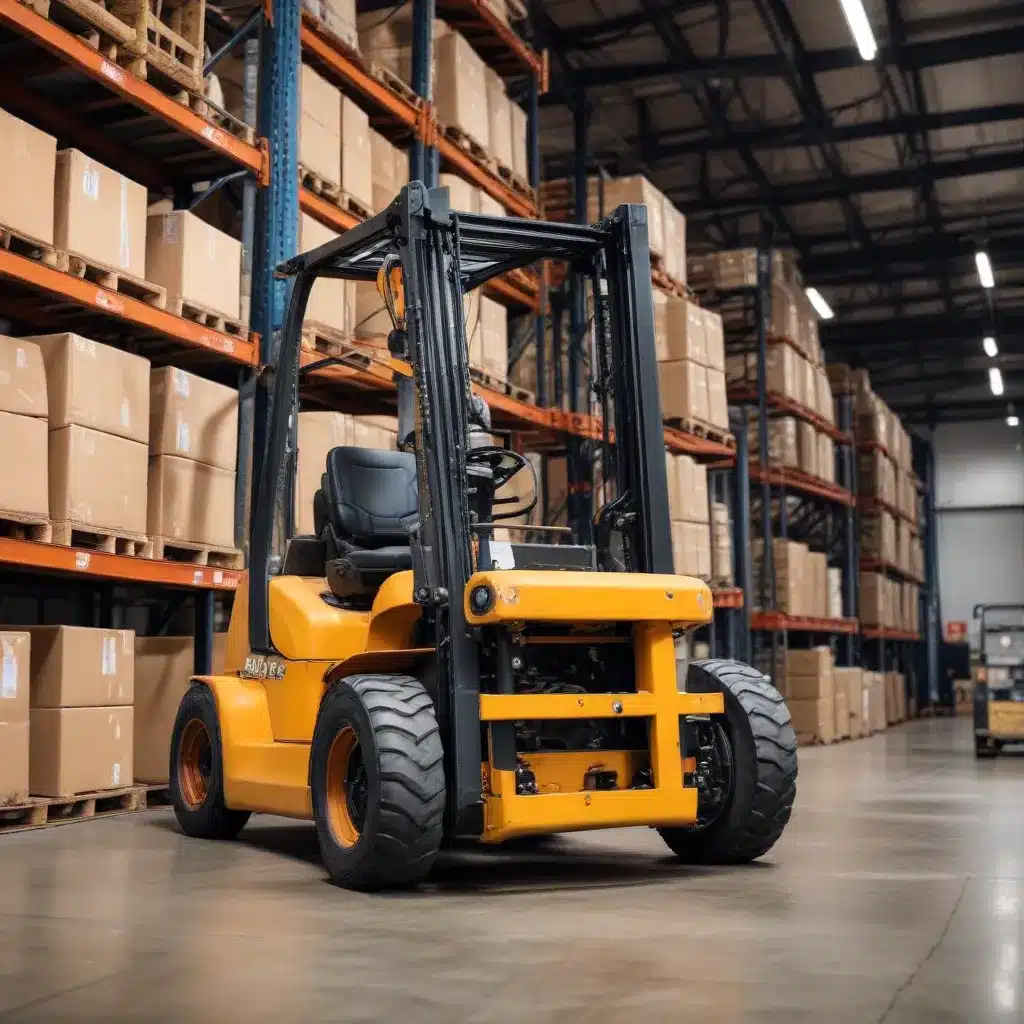
The Importance of Comprehensive Forklift Operator Training
Effective forklift fleet management in warehousing and logistics operations is crucial for maintaining productivity, safety, and compliance with industry regulations. At the heart of this lies the importance of providing comprehensive training to forklift operators. Proper operator training not only ensures the safe operation of forklifts but also helps optimize fleet utilization, reduce operational costs, and mitigate the risk of accidents.
Minimizing Workplace Hazards
Forklifts are powerful machines that, when operated incorrectly, can pose significant risks to operators, nearby workers, and the transported goods. Improper forklift handling can lead to tip-overs, collisions, and other incidents that can result in serious injuries or even fatalities. By implementing a robust forklift operator training program, businesses can educate their employees on safe operating procedures, load capacity limits, and best practices for maneuvering forklifts in busy warehouse environments.
Ensuring Regulatory Compliance
The Occupational Safety and Health Administration (OSHA) and other regulatory bodies have strict guidelines in place governing the operation of forklifts in the workplace. These regulations typically mandate that all forklift operators undergo formal training and certification before being allowed to operate the equipment. Maintaining comprehensive training records and ensuring that operators stay up-to-date with refresher courses is essential for demonstrating compliance during regulatory inspections and audits.
Enhancing Operational Efficiency
Forklift operator training not only promotes safety but also contributes to improved operational efficiency. Well-trained operators can navigate their vehicles more skillfully, optimize load placement, and identify potential workflow bottlenecks. This leads to faster material handling, reduced product damage, and minimized downtime – all of which positively impact the overall productivity of the warehouse or distribution center.
Designing an Effective Forklift Operator Training Program
Crafting a comprehensive and effective forklift operator training program involves several key steps:
Develop Training Curriculum
The training curriculum should cover a wide range of topics, including forklift operation, load capacity and stability, maneuvering techniques, safety protocols, and emergency procedures. It’s essential to ensure that the training aligns with relevant industry standards and regulatory requirements.
Provide Theoretical and Practical Instruction
Forklift operator training should combine theoretical knowledge, such as understanding forklift mechanics and load dynamics, with hands-on, practical training. This ensures that operators not only understand the concepts but can also demonstrate their skills in a controlled environment before taking the equipment onto the warehouse floor.
Implement Certification and Recertification
All forklift operators should be required to obtain proper certification before being allowed to operate the equipment. This certification process should include both written and practical evaluations to assess the operator’s competence. Additionally, implement a system for regular recertification to ensure that operators maintain their skills and stay up-to-date with any changes in regulations or best practices.
Establish Ongoing Training and Evaluation
Forklift operator training should not be a one-time event. Implement a program of ongoing training, including periodic refresher courses, to reinforce safe operating procedures and address any emerging issues or operational changes. Regularly evaluate operator performance and provide additional training or coaching as needed to maintain a high level of safety and efficiency.
Leverage Technological Solutions
Advancements in technology can significantly enhance forklift operator training and fleet management. Consider incorporating tools like virtual reality (VR) simulations, telematics systems, and fleet management software to provide more engaging and data-driven training experiences. These technologies can also help track operator performance, monitor forklift usage, and identify areas for improvement.
Optimizing Forklift Fleet Management with Comprehensive Operator Training
Effective forklift operator training is just one aspect of a comprehensive forklift fleet management strategy. By combining operator training with other best practices, businesses can achieve optimal performance, safety, and cost-efficiency in their warehouse operations.
Maintenance and Inspections
Regular maintenance and inspections of the forklift fleet are crucial for maintaining operational reliability and safety. Develop a preventive maintenance schedule, track service records, and ensure that any issues are promptly addressed. Empower operators to perform pre-shift inspections and report any mechanical problems or safety concerns.
Utilization Monitoring and Route Optimization
Closely monitor the utilization of each forklift in the fleet, tracking factors such as operating hours, travel distances, and idle times. This data can help identify underutilized or overworked units, enabling you to optimize forklift deployment and streamline workflow processes.
Telematics and Fleet Management Software
Leverage telematics and fleet management technologies to gather real-time data on forklift operations, including speed, acceleration, braking, and impacts. This information can inform driver training, identify unsafe behaviors, and provide valuable insights for improving fleet efficiency and safety.
Continuous Improvement
Establish a culture of continuous improvement within your forklift fleet management program. Regularly review operator performance, maintenance records, and operational data to identify opportunities for optimization. Implement corrective measures, monitor their effectiveness, and continuously refine your processes to enhance safety, productivity, and cost-effectiveness.
By investing in comprehensive forklift operator training and integrating it with a holistic fleet management strategy, businesses can create a safer, more efficient, and cost-effective warehousing and logistics operation. Partnering with industry experts, such as Forklift Reviews, can further assist in developing and implementing best practices for forklift fleet management and operator training.
Conclusion
Forklift operator training is a critical component of effective forklift fleet management. By providing comprehensive training, businesses can minimize workplace hazards, ensure regulatory compliance, and enhance overall operational efficiency. Designing a robust training program, leveraging technological solutions, and integrating it with a holistic fleet management strategy can lead to significant improvements in safety, productivity, and cost-effectiveness. Prioritizing forklift operator training is an investment that pays dividends in the long run, contributing to the overall success and competitiveness of your warehouse or logistics operation.

